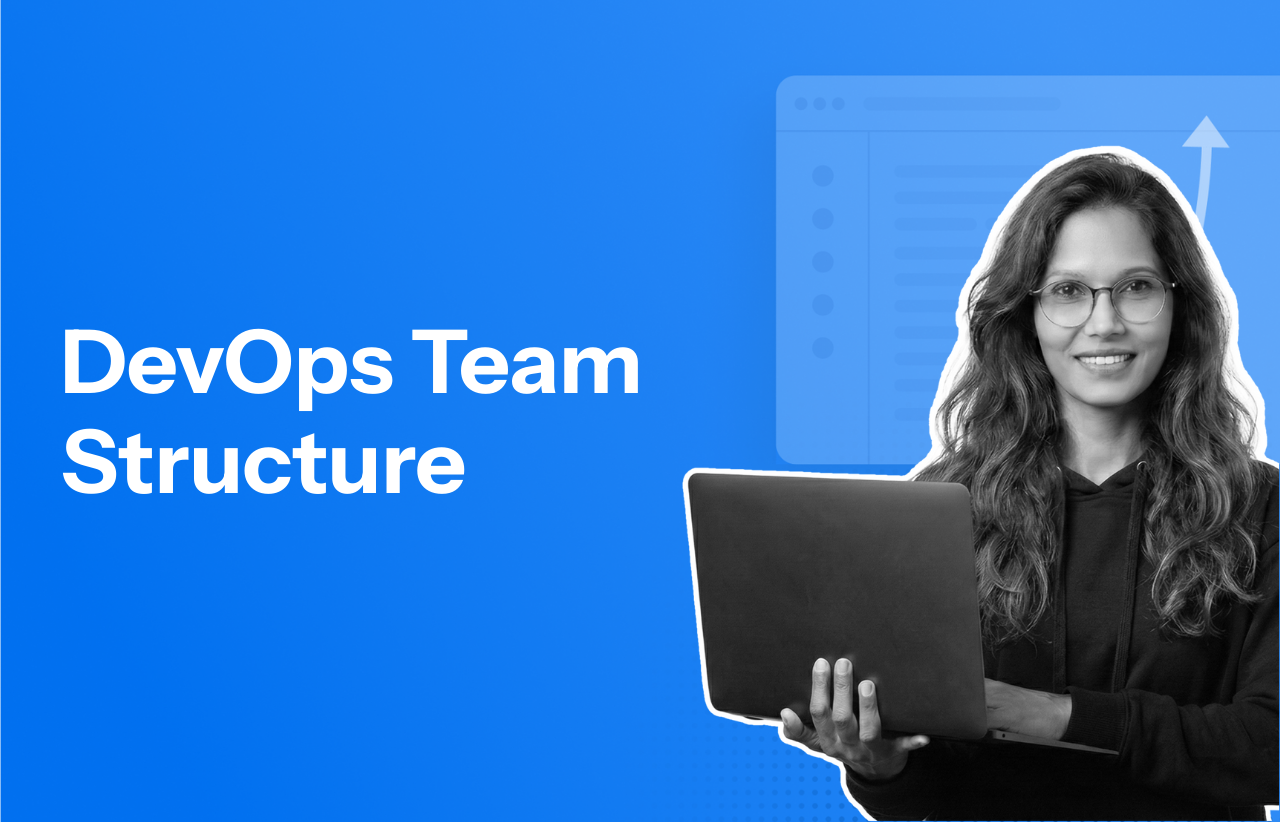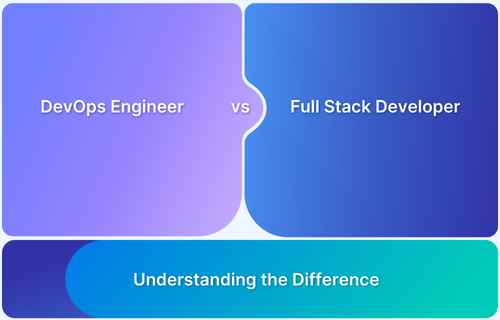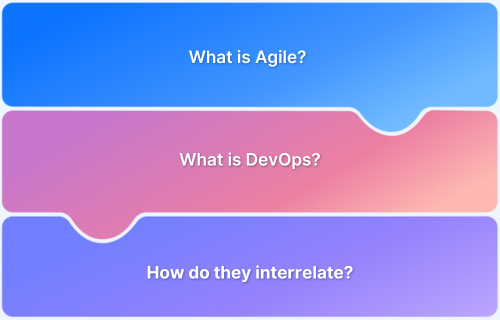DevOps combines software development (Dev) and IT operations (Ops) for faster delivery of
updates and improvements. Its goal is to improve collaboration and automate the software delivery process for faster, more reliable updates.
However, setting up a DevOps team without a proper audit of your company’s requirements can be a slow disaster. This guide will explain the fundamental nature and direction of the DevOps phenomenon to help you build the best version for your tech effort.
Emergence of DevOps
The term “DevOps” was coined in 2009 by an IT consultant and software developer.
The concept of DevOps, however, has its roots in earlier approaches to software development, such as agile software development and the practice of integrating development and operations teams. The history of software development can be traced back to the 1950s and 1960s when computer programming emerged as a profession.
- In the early days, software developers were responsible for writing and testing code, but the landscape changed rapidly.
- Right now, because of the dependence on the current version of cloud-based DevOps, there is an acute requirement for people who understand these technologies enough to bring business value to tech companies.
- This has led to an explosion of DevOps-based jobs in the market, along with Test Automation, Data Science, and other jobs produced by the technological growth arc we are witnessing.
The role of DevOps teams can include aspects of software development, operations, and testing, with a strong emphasis on automation and continuous delivery and deployment.
However, the scope and focus of the role can vary depending on the specific organization and its needs.
What is a DevOps Team?
A DevOps team is a collaborative group of professionals responsible for implementing and maintaining the DevOps methodology within an organization. DevOps combines development (Dev) and operations (Ops) teams to break down traditional silos, enabling faster, more efficient software development and delivery.
Key Roles in a DevOps Team
Here are some of the notable key roles in a DevOps Team:
- DevOps Engineer: Bridges the gap between coding and operations, automating processes and improving system reliability.
- Software Developer/Engineer: Writes code and collaborates with operations to ensure smooth deployment.
- System Administrator/Operations Specialist: Manages infrastructure, ensures uptime, and monitors system performance.
- QA/Testing Specialist: Automates testing and ensures code quality across continuous integration pipelines.
- Release Manager: Oversees deployment processes and coordinates across teams for smooth releases.
- Security Engineer: Integrates security practices into DevOps workflows (DevSecOps).
Fundamentals of DevOps Teams
DevOps has been particularly influential in the cloud computing and web development communities, but it is also used in various other contexts.
- According to this survey, the level of organizational maturity is directly co-related to the adoption of DevOps and proper utilization of cloud technology.
- Today, DevOps is widely recognized as a critical approach to software development and operations and has become an essential part of the software industry.
- According to this report, DevOps can help reduce the time to market by 50%.
The Need for DevOps Team Structure
The need for a DevOps team can arise at different stages in the growth journey of a tech company, depending on the size of the company and the complexity of its software development and delivery process.
- A small start-up with a few developers may not need a dedicated DevOps team in the early stages of its growth. The developers may be able to handle the DevOps tasks themselves, or they may have a generalist who is responsible for both development and operations.
- As the start-up grows its software development and the delivery process becomes more complex, creating a dedicated DevOps team may make sense. This could happen when the company has multiple development teams working on different products or many servers and infrastructure to manage.
- A larger tech company with a mature software development and delivery process may create a nested DevOps teams hierarchy to improve the efficiency and reliability of its process.
For example a company with many projects and a complex software delivery pipeline may benefit from having a dedicated DevOps team per project group responsible for automating and optimizing the delivery process per product per release.
Overall, the need for a DevOps team typically arises when a company’s software development and the delivery process becomes complex enough that it would benefit from specialized expertise in automation and optimization.
Also Read: Why DevOps Teams Need Cloud-Based Solutions
Types of DevOps Team Configurations
DevOps teams have many different configurations, and the specific configuration that is best for a particular organization will depend on its size, goals, and needs. Here are a few examples:
1. Centralized DevOps team: In this configuration, the DevOps team is responsible for all aspects of the software delivery process, including development, testing, and operations. The team may be responsible for multiple products or projects and may work closely with other teams within the organization.
2. Embedded DevOps Team: In this configuration, the DevOps team is embedded within a specific development team and is
responsible for the DevOps aspects of that team’s product or project. This is one of the benefits of DevOps when the team deeply understands the product and can work closely with the development team to optimize the delivery process.
3. Distributed DevOps Team: Here, the DevOps team is distributed across multiple development teams. It is responsible for the DevOps aspects of the teams’ products or projects.
This can be an effective way to scale an enterprise testing strategy across a large organization but may require more coordination and communication to ensure that the team can support multiple teams effectively.
4. Specialized DevOps team: In this configuration, the DevOps team is responsible for a specific aspect of the software delivery process, such as testing or infrastructure management. This can be an effective way to focus the team’s expertise and ensure that it can make a significant impact in a particular area.
We are using system design terminology to refer to DevOps team modalities because it is only an abstraction intended to capture a human resource use case for today’s tech companies.
Overall, the best configuration for a DevOps team will depend on the specific needs and goals of the organization and may involve a combination of these approaches.
Learn More: What is DevOps Configuration Management
5. Standalone DevOps Teams: These teams operate independently within the organization, focusing on fostering collaboration between development and operations across various projects. They work to implement DevOps practices organization-wide, ensuring consistency and efficiency.
6. External DevOps Teams or Consultants: For organizations lacking in-house DevOps expertise, hiring external teams or consultants can be beneficial. These external experts provide guidance on best practices, assist in setting up DevOps processes, and offer training to internal staff, facilitating a smoother transition to DevOps methodologies.
7. Site Reliability Engineering (SRE) Teams: SRE teams specialize in maintaining and improving system reliability and performance. They focus on automating operations tasks, monitoring system health, and ensuring that services meet specific reliability standards, complementing the goals of DevOps by emphasizing stability alongside rapid development.
DevOps Team Sub-Roles
There are many possible sub-roles within a DevOps team, and the specific roles present will depend on the size and needs of the team, as well as the specific responsibilities assigned to the team.
Here are six possible sub-roles within a DevOps team:
1. Build engineer
A Build engineer is responsible for implementing and maintaining the tools and processes used to build, deploy, and monitor software applications.
This may include setting up CI/CD pipelines, configuring monitoring and alerting systems, and automating infrastructure provisioning.
2. Site Reliability Engineer (SRE):
An SRE is responsible for ensuring the reliability and performance of a company’s production systems. This may include tasks such as monitoring and troubleshooting production issues, implementing automation to prevent outages, and working with development teams to optimize the performance of applications.
3. Test Automation Engineer
A test automation engineer is responsible for designing and implementing automated tests for software applications. This may include writing and maintaining automated test scripts, setting up test environments, and analyzing test results.

4. Networking/Infrastructure engineer
A networking/infrastructure engineer is responsible for designing and maintaining the internet infrastructure to support software applications.
This may include provisioning and configuring servers, storage, and networking equipment and implementing automation to manage and maintain the infrastructure.
5. Release engineer
A release engineer is responsible for coordinating the deployment of software releases to production environments.
This may include building and testing release packages, coordinating with different teams to ensure releases are ready to go live, and deploying releases to production environments.
Also Read: Testing in Production
6. Cloud Engineer
Cloud computing has become a key component of many DevOps practices. As a result, there is a high demand for engineers with experience in cloud platforms such as AWS, Azure, and Google Cloud.
Cloud Engineers are responsible for designing, building, and maintaining the infrastructure and architecture of cloud-based systems.

Overall, the specific sub-roles within a DevOps team will depend on the needs and goals of the organization and may involve a combination of these and other roles.
Leadership in a DevOps Team
Effective leadership of a DevOps team requires various skills and qualities. Some key qualities desired for effective leadership of a DevOps team include
- Technical expertise: A leader in a DevOps team should have a good understanding of the technical aspects of software development, operations, and delivery. This includes knowledge of programming languages, infrastructure, and cloud-based platforms, as well as experience with current and upcoming tools and methodologies..
- Communication and collaboration skills: DevOps is all about collaboration and communication, so a leader needs to be able to effectively communicate with both development and operations teams, as well as with other stakeholders such as customers and management.
- Vision and strategy: A leader should have a clear vision for the team’s goals and a strategy for achieving them. They should be able to create a roadmap for the team, communicate it effectively, and make decisions that align with the team’s goals.
- Problem-solving skills: A leader should be able to effectively identify and resolve problems that arise in the development and delivery of software. This includes troubleshooting DevOps pipeline issues, identifying performance bottlenecks, and addressing security vulnerabilities.
- Flexibility and adaptability: The DevOps space is constantly evolving, so a leader should be able to adapt to new technologies and methodologies. They should be open to new ideas and be able to lead the team in embracing change.
- Agile mindset: A DevOps leader should be able to think and work agilely, with the ability to adapt to changing requirements and priorities.
- Automation mindset: A DevOps leader should be able to identify areas where automation can improve the software development and delivery process and have the knowledge to implement them.
- Continuous improvement mindset: A DevOps leader should be able to continuously identify and implement improvements to the software development and delivery process, with the ability to measure and track results.
- Strong understanding of cloud and container technologies: A DevOps leader should be well-versed in the latest cloud and container technologies, such as AWS, Azure, and Kubernetes, with the ability to implement them to improve the software development and delivery process.
- Strong understanding of security and compliance: A DevOps leader should have a strong understanding of security and compliance best practices and be able to implement them to ensure the safety and security of the organization’s software development and delivery process.
- Strong understanding of data and analytics: A DevOps leader should have a strong understanding of data and analytics and be able to use them to make data-driven decisions and improve the software development and delivery process.
Best Practices for DevOps professionals
Here are a few examples of the responsibilities and qualifications commonly required for various DevOps roles:
| Job/Role Title | Responsibilities | Qualifications |
|---|---|---|
| DevOps Engineer |
|
|
| Test Automation Engineer |
|
|
| Site Reliability Engineer |
|
|
| Security Engineer |
|
|
| Cloud Engineer |
|
|
| Containerization Engineer |
|
|
Overall, the leader of a DevOps team should be a skilled and experienced technical professional with strong leadership, communication, and problem-solving skills and the ability to adapt to changing circumstances.
Things to consider when forming a DevOps Team
Forming a DevOps team requires strategic planning and thoughtful consideration of key factors to ensure seamless collaboration, efficiency, and scalability.
- Business Goals and Objectives: Align the DevOps team’s roles with organizational goals like faster delivery, improved quality, or enhanced collaboration.
- Team Structure: Choose a DevOps team structure (for example, centralized, embedded, or hybrid) that fits your organization’s size and needs.
- Skills and Expertise: Build a team with a balance of development, operations, automation, and collaboration skills.
- Collaboration Culture: Foster a culture of communication and teamwork between development, operations, and other stakeholders.
- Tooling and Automation: Invest in tools for automation, CI/CD, and monitoring to streamline workflows and reduce manual effort.
- Leadership and Sponsorship: Appoint a DevOps leader and secure management support for driving DevOps adoption.
- Continuous Learning and Improvement: Promote ongoing learning and process refinement through experimentation and feedback loops.
- Metrics and Success Criteria: Define KPIs like deployment frequency and system reliability to track and measure success.
- Security Integration (DevSecOps): Embed security practices into the DevOps process to address vulnerabilities early.
- Scalability: Design the team and processes to scale with the organization’s growth and evolving needs.
- Stakeholder Engagement: Involve stakeholders to ensure priorities are aligned and DevOps integrates seamlessly into workflows.
- Infrastructure Readiness: Assess and upgrade infrastructure for DevOps compatibility, including cloud or containerization.
How BrowserStack Fits into DevOps Workflows?
Integrating BrowserStack tools like Automate into your DevOps workflow enhances Continuous Testing by enabling automated tests on real devices and browsers, ensuring rapid feedback and high-quality releases.
Key Benefits:
- Seamless CI/CD Integration: BrowserStack integrates with popular CI/CD tools like Jenkins, GitLab CI/CD, and Azure DevOps, embedding testing into your pipeline for immediate feedback on code changes.
- Real Device Cloud: Conduct tests on actual devices and browsers, replicating real user conditions to identify environment-specific issues early.
- Parallel Test Execution: Run multiple tests simultaneously, reducing testing time and accelerating the release cycle.
- Scalability: BrowserStack’s cloud infrastructure scales with your testing needs, eliminating the maintenance burden of in-house test environments
Conclusion
Overall, the leader of a DevOps team should be a skilled and experienced technical professional with strong leadership, communication, and problem-solving skills and the ability to adapt to changing circumstances.
A thoughtfully structured DevOps team improves operational workflows, drives greater value to customers. It ensures the organization’s ability to adapt and scale with changing demands.
To maximize the efficiency of your DevOps workflows, integrate BrowserStack into your toolset. With its seamless CI/CD integrations, real device cloud, and robust testing capabilities, BrowserStack empowers teams to execute continuous testing at scale.







